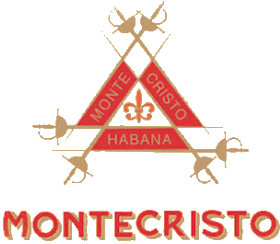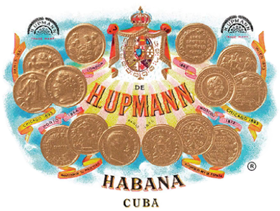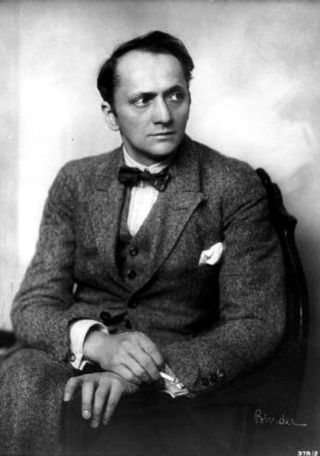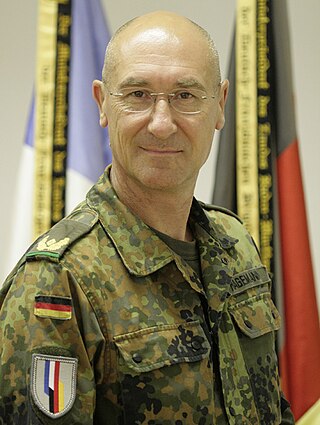History
H. Upmann & Co. was very successful through the purchase of promissory notes in Madrid during the Cuban War of Independence. Due to the American blockade during the war, the Spanish government was dependent on H. Upmann’s bank to finance its war efforts. Because of the unrest in Cuba, many bankers decided to withdraw their money from Cuba in 1896. As a representative of the Rothschilds and other important customers, H. Upmann & Co. transferred large quantities of gold and silver to its office in New York, which had been a financial center and trading hub with the Caribbean islands since the 18th century. [1]
Joseph Herrings, a war correspondent, described the Upmann banking house as "the most important banking company in Cuba, perhaps in the whole of West India." [2]
After the death of Hermann Friedrich Upmann in 1910, the bank was presided by his nephews, Hermann Friedrich and Albert Upmann and Theodore Garbade, a partner of the bank who quit the bank in 1916. [3]
In Havana the bank built its own business house in Havana on the corner of the Amargura and Mercader’s streets. Built in 1904, it was the first building of its kind. It houses today the agency of the Central Bank of Cuba (before called the Cuban National Bank). [4]
In 1917, H. Upmann's assets were seized by the Custodian of Alien Enemy properties in the United States, and the firm was placed on the US Enemy Trade List. With the end of World War I, in 1918, Cuba's economic situation had worsened dramatically, especially after its great crash 1920 that brought unfathomable consequences to thousands of workers who lost their jobs. Due to these difficulties, H. Upmann & Co. - like so many others - left in 1922 and was sold for a mere 30,000 pesos to the Habsburg Trust Havana Bank [5] Three years later, on September 3, 1925, Herman passed away and his brother Albert moved to the United States. [6]

Otto Hermann Kahn was an American investment banker, collector, philanthropist, and patron of the arts. Kahn was a well-known figure, appearing on the cover of Time magazine and was sometimes referred to as the "King of New York". In business, he was best known as a partner at Kuhn, Loeb & Co. who reorganized and consolidated railroads. In his personal life, he was a great patron of the arts, where among things, he served as the chairman of the Metropolitan Opera.
Norddeutscher Lloyd was a German shipping company. It was founded by Hermann Henrich Meier and Eduard Crüsemann in Bremen on 20 February 1857. It developed into one of the most important German shipping companies of the late 19th and early 20th centuries, and was instrumental in the economic development of Bremen and Bremerhaven. On 1 September 1970, the company merged with Hamburg America Line (HAPAG) to form Hapag-Lloyd AG.
The B. Metzler seel. Sohn & Co. AG is a private banking company in Frankfurt, Germany. Metzler traces its origins to a trading company established 1674 by Benjamin Metzler in Frankfurt and is Germany’s second oldest bank and the world's 5th oldest.

Montecristo is a brand of cigars and cigarettes produced separately and independently in Cuba by Habanos S.A., the national tobacco company, and in La Romana, Dominican Republic by Altadis, a subsidiary of British conglomerate Imperial Brands.

H. Upmann is a Cuban brand of premium cigars established by banker Hermann Dietrich Upmann. The brand is currently owned by a British corporation, Imperial Brands. The cigars are manufactured by Habanos S.A., the state-owned tobacco company in Cuba, and Altadis in La Romana, Dominican Republic.

Theodor August Konrad Loos was a German actor.

General of the Infantry is a former rank of the German army. It is currently an appointment or position given to an OF-8 rank officer, who is responsible for particular affairs of training and equipment of the Bundeswehr infantry.

Joh. Berenberg, Gossler & Co. KG, commonly known as Berenberg Bank and also branded as simply Berenberg, is a multinational full-service private and merchant bank headquartered in Hamburg, Germany. It is considered the world's oldest merchant bank.

The Jacquier and Securius Bank was a prominent German private bank founded in 1817 by August Jacquier and Henrich Securius. The bank's headquarters were located in central Berlin in a building nicknamed the Red Castle. Originally under Jewish ownership, the bank began the process of Aryanization in 1933, which Richard Lenz and Robert Kraus becoming the majority stakeholders. The bank was closed by 1945 after its assets had been taken by the state its buildings sold.

Trinity Church (Dreifaltigkeitskirche) was a Baroque Protestant church in Berlin, eastern Germany, dedicated to the Holy Trinity. It was opened in August 1739 and destroyed in November 1943, with its rubble removed in 1947.
The German Mathematical Society is the main professional society of German mathematicians and represents German mathematics within the European Mathematical Society (EMS) and the International Mathematical Union (IMU). It was founded in 1890 in Bremen with the set theorist Georg Cantor as first president. Founding members included Georg Cantor, Felix Klein, Walther von Dyck, David Hilbert, Hermann Minkowski, Carl Runge, Rudolf Sturm, Hermann Schubert, and Heinrich Weber.

A Wehrwirtschaftsführer was, during the time of Nazi Germany (1933–1945), an executive of a company or of a large factory. Wehrwirtschaftsführer were appointed, starting in 1935, by the Wehrwirtschafts und Rüstungsamt being a part of the Oberkommando der Wehrmacht (OKW), that was pushing the build-up of arms for the Wehrmacht. Appointments aimed to bind the Wehrwirtschaftsführer to the Wehrmacht and to give them a quasi-military status.

The Disconto-Gesellschaft was a significant German bank, founded in Berlin in 1851. It was one of the largest German banking organizations until its 1929 merger into Deutsche Bank.

The Berenberg family was a Flemish-origined Hanseatic family of merchants, bankers and senators in Hamburg, with branches in London, Livorno and other European cities. The family was descended from the brothers Hans and Paul Berenberg from Antwerp, who came as Protestant refugees to the city-republic of Hamburg following the Fall of Antwerp in 1585 and who established what is now Berenberg Bank in Hamburg in 1590. The Berenbergs were originally cloth merchants and became involved in merchant banking in the 17th century. Having existed continuously since 1590, Berenberg Bank is the world's oldest surviving merchant bank.

Böhlau Verlag is a book and magazine publisher predominantly of humanities and social science disciplines, based in Vienna and Cologne, with a branch in Weimar. They describe their focus as being "from the historically oriented humanities". The publishing house was an independent and privately owned media corporation until it was acquired by Vandenhoeck & Ruprecht in 2017.
Richard Kaselowsky was a German entrepreneur, industrialist, manager of Dr. Oetker, and member of the Nazi Party and Freundeskreis der Wirtschaft. He was the eldest son of the manufacturer Richard Kaselowsky, a deputy in the Prussian state parliament. He was the stepfather of Rudolf August Oetker.

Hermann Dietrich Upmann was a banker, merchant and cigar manufacturer in Cuba, creator of the H. Upmann 1844 brand.

Theodore Dietrich Garbade was a merchant and banker. He was President of the Union of Manufacturers of Cigars of Cuba.

Carl Levy also known as Carl Hagen, was a German Jewish banker and philanthropist.














